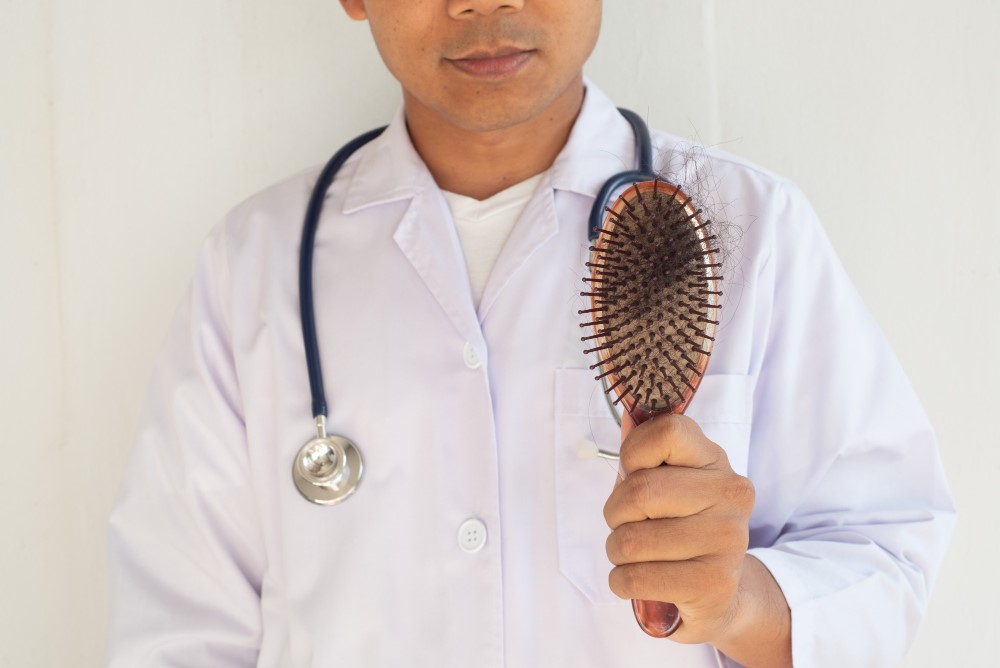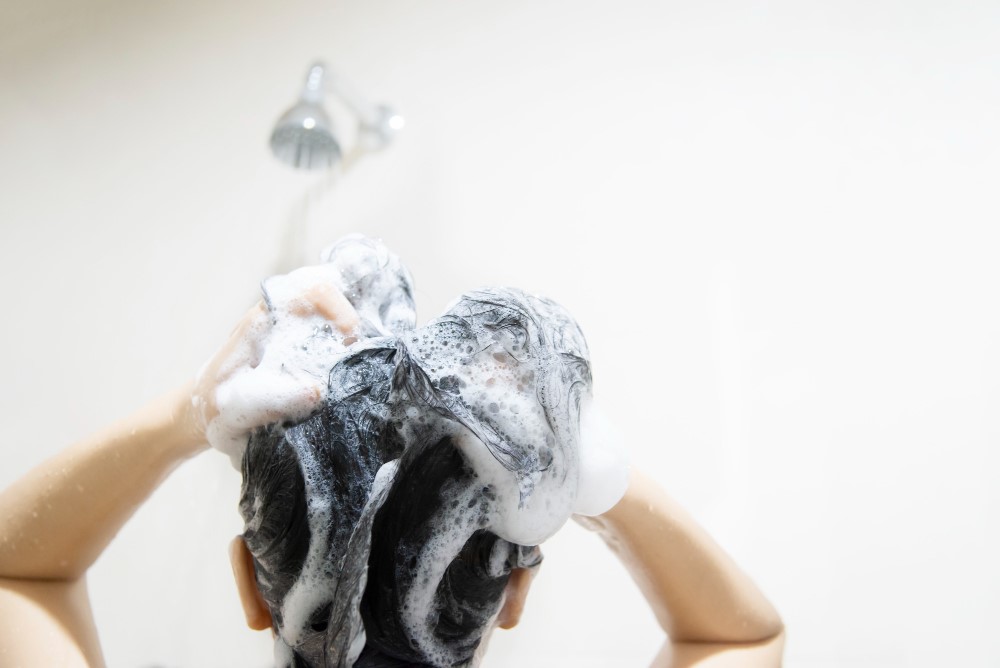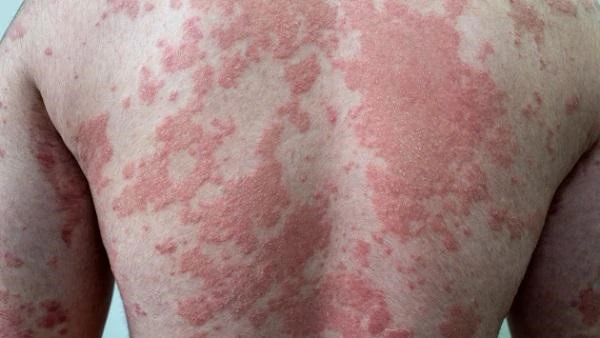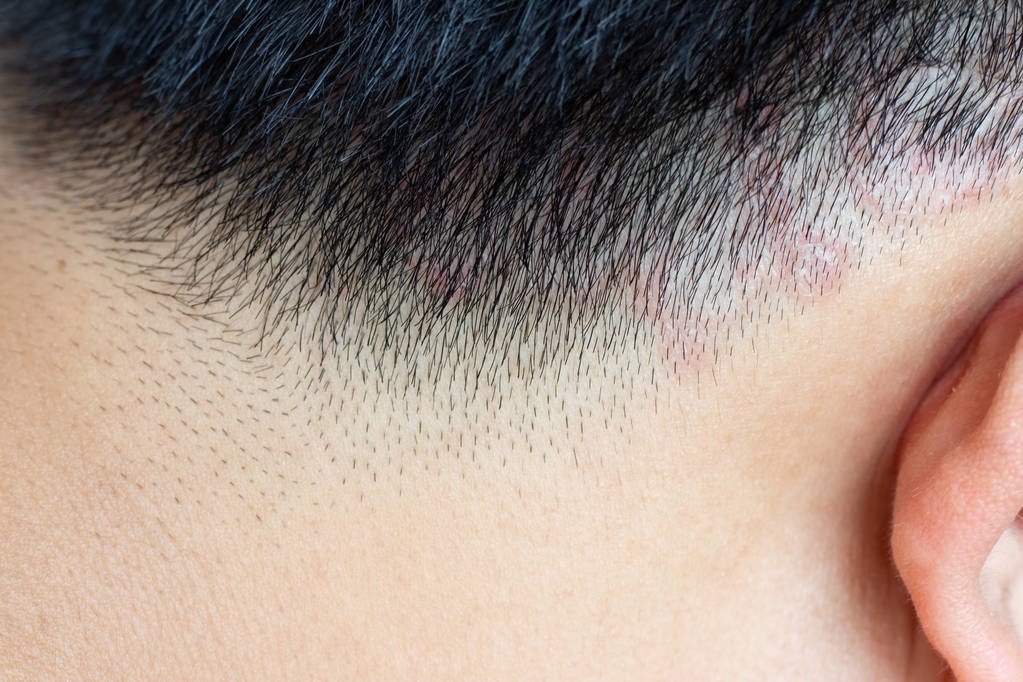September 05, 2024

Hair loss is a common issue caused by various factors, affecting both the mental well-being and quality of life for those experiencing it. Understanding effective treatment methods and selecting a safe shampoo for hair loss is crucial. Addressing the root causes and thoroughly caring for your hair can lead to long-term benefits.
1. Causes of Hair Loss
Before finding the best shampoo for hair loss, it’s essential to understand the reasons behind hair thinning. Experts identify several causes:
- Hormonal Imbalances in Women: Hair loss in women often stems from hormonal issues, particularly during childbirth, menstruation, or menopause.
- Hormonal Imbalances in Men: In men, hair loss can be due to imbalances in hormones like Dihydrotestosterone (DHT) and Testosterone.
- Other Factors: Nutritional deficiencies, stress, fatigue, anxiety, sleep disorders, genetics, or the overuse of harmful chemicals can lead to hair loss in both men and women.
- Side Effects of Cancer Treatment: Some cancer treatments may cause hair loss.
- Medical Conditions: Hair loss can result from scalp conditions or thyroid diseases.
- Hair Growth Cessation: In some cases, hair stops growing entirely, leading to baldness, which is more common in men.

Depending on the cause, different interventions may be needed. For hair loss due to medical conditions or hormonal imbalances, consulting a doctor is necessary. Maintaining a positive mindset, ensuring a balanced diet, getting enough sleep (before 11 PM), and regular exercise are also important. Additionally, using a specialized shampoo can effectively improve hair loss.
2. How to Choose the Best Shampoo for Hair Loss
Before selecting a shampoo, it's crucial to determine your hair and scalp type. For instance, using a shampoo designed for oily scalps on a dry scalp won’t be effective.

Here are some criteria to help you choose the best shampoo:
2.1. Identify Your Scalp Type
- Oily Scalp:
- Oily scalps can be hereditary or result from overactive sebaceous glands.
- Excessive oil production can disrupt the natural oil balance, making hair heavy and greasy.
- Overproduction of sebum may result from various factors, including hormonal changes, environmental shifts, or poor hair care habits.
- Dry Scalp:
- A dry scalp is characterized by underactive sebaceous glands, which produce insufficient oil.
- This can lead to flaking and dandruff.
2.2. Identify Your Hair Type
Different hair types react differently to various products. It’s important to identify your hair type to choose the most suitable shampoo:
- Dry Hair: Focus on shampoos that provide moisture. Dry hair is difficult to manage because it struggles to retain moisture. It’s often brittle, frizzy, and prone to breakage. Avoid shampoos with sulfates, which can strip natural oils from the hair.
- Oily Hair: This hair type tends to get greasy quickly and is often accompanied by itchiness and dandruff. Oily hair is also prone to infections and breakage due to clogged follicles. Look for shampoos that remove excess oil and dirt, preferably with ingredients like sulfates and salicylic acid.
- Color-Treated Hair: Color-treated hair requires special care as it's been damaged by chemicals. Regular shampoos may not be suitable. Look for shampoos specifically formulated for color-treated hair, which are moisturizing and gentle. Avoid sulfate-containing shampoos to prevent color fading.
- Thin Hair: Thin hair tends to be soft and dries quickly after washing. However, it’s difficult to style and tends to become oily quickly. If you have thin hair, avoid creamy shampoos. Instead, choose volumizing products.
- Curly Hair: Curly hair, whether natural or styled, requires extra care. It tends to be dry due to its structure. Choose shampoos rich in protein or specially formulated to soften and moisturize curly hair.
2.3. Additional Considerations for Choosing a Hair Loss Shampoo
Once you’ve identified your scalp and hair type, selecting the best shampoo becomes easier. However, be mindful of certain ingredients that can contribute to hair loss or increase the risk of scalp irritation, making hair thinner and more prone to breakage.
Ingredients to Avoid:
- Alcohol: High alcohol content can strip hair of moisture and natural oils.
- Mineral Oil and Petroleum: These lubricants can weigh hair down and contribute to hair loss.
- Sulfates: Commonly used in shampoos, sulfates are strong detergents that can make hair dull, dry, and prone to tangling and breakage.
- Sodium Chloride: Used to thicken shampoos, this ingredient can dry out the hair and scalp, potentially causing irritation and itching. High levels of sodium chloride can lead to hair loss.
- Formaldehyde: While it helps stabilize shampoos, high concentrations can cause allergic reactions and even cancer.
- Propylene Glycol: While it helps nutrients penetrate the scalp, prolonged use can cause scalp irritation and hair loss.
- Synthetic Fragrances and Colors: These can irritate sensitive hair and scalp. Opt for fragrance-free products if your hair or scalp is sensitive.
3. Additional Tips to Prevent Hair Loss
In addition to using the right shampoo, consider the following tips to improve hair health:
3.1. Change Shampoo If Scalp Irritation Occurs
Shampoo is meant to clean the hair, but using the wrong type can damage hair follicles and increase hair loss. If you notice irritation, switch to a different shampoo that suits your scalp better.
3.2. Dilute Shampoo Before Use
For those prone to hair loss, wet your hair and scalp before applying shampoo. Lather the shampoo in your hands before applying it to your hair. Massage gently, then rinse thoroughly. Avoid applying undiluted shampoo directly to your scalp, as leftover residue can cause irritation, itching, dandruff, and hair loss.
3.3. Limit the Use of Dry Shampoo
Dry shampoos should be used sparingly as they don’t clean the hair but neutralize oil. Overuse can clog hair follicles, leading to irritation, infection, and eventually, hair loss.
3.4. Wash Hair 2-3 Times a Week
Washing your hair 2-3 times a week is sufficient, even for those with oily hair. Over-washing can dry out the hair, making it brittle, thin, and prone to breakage and dandruff.
3.5. Don’t Sleep with Wet Hair
Avoid going to bed with wet hair, as this can attract dust and dirt. Sleeping with wet hair can also increase hair loss, dandruff, and create a favorable environment for harmful microorganisms to grow.
By following these tips, you can better understand the causes of hair loss and choose the right shampoo to address it effectively.

Related blog posts

Dermatology
The Growing Role of AI in Healthcare
Artificial Intelligence (AI) has become an integral part of modern life, with its influence growing rapidly, especially in healthcare.

Dermatology
Understanding Psoriasis: Causes, Symptoms, and Treatment Options
Psoriasis is a chronic autoimmune skin condition that affects millions of people worldwide.

Dermatology
What is scalp ringworm?
Scalp ringworm is a fairly common skin condition. Let’s learn about scalp ringworm and how to treat it.